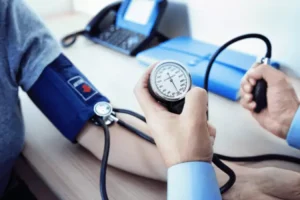When left unchecked, this addiction can lead to ruined relationships, careers, and health. They do not know what is going on and cannot remember what happens, making it very dangerous. As intoxication becomes severe, all of these symptoms heighten, and a person experiencing them may vomit, black out (lose their memories of the evening), and eventually lose consciousness.
- A low level of alcohol intoxication causes mild symptoms, while severe intoxication, or alcohol poisoning, can be life threatening.
- A mixed drink or cocktail could have more than one serving of alcohol in it.
- Addiction physicians and therapists in solo or group practices can also provide flexible outpatient care.
- A BAC of 0.08 is the legal limit of intoxication in the United States.
- Taking drugs before drinking and/or not eating can also increase the effects of alcohol on the body.
Stupor (0.25 – 0.49% BAC)
Always consult a medical provider for diagnosis and treatment. To diagnose alcohol poisoning, your doctor will perform an exam and order testing. The good news is that within a year of stopping drinking, stages of alcohol poisoning most cognitive damage can be reversed or improved. Your whole body absorbs alcohol, but it really takes its toll on the brain. Alcohol interferes with the brain’s communication pathways.
- These programs typically last 30, 60, or 90 days, sometimes longer.
- Alcohol poisoning affects the brain, blood vessels, and liver.
- Intoxication can also lead to choking due to vomit, extreme dehydration, circulatory issues, seizures, and even brain damage.
- For most people, a single drink — for example, 1.5 ounces (oz) of hard liquor, 12 oz of beer, or 5 oz of wine — will elevate blood alcohol by 0.06 or 0.07 per drink.
Alcohol Poisoning Complications

There is no way to reverse alcohol poisoning; medical intervention is needed to protect the individual’s life. Calling 911 and keeping your friend safe until help arrives is the first step to safely treating someone with alcohol poisoning. As a result, overcoming guilt and negative self-talk is vital. Some people may feel so “broken” that they almost feel they can no longer experience joy and confidence, or have healthy relationships again. During the recovery stage, it’s not uncommon to feel temporarily worse.
Alcohol Poisoning Risks
Genetic, psychological, social and environmental factors can impact how drinking alcohol affects your body and behavior. Theories suggest that for certain people drinking has a different and stronger impact that can lead to alcohol use disorder. If you feel that you sometimes drink too much alcohol, or your drinking is causing problems, or if your family is concerned about your drinking, talk with your health care provider. Other ways to get help include talking with a mental health professional or seeking help from a support group such as Alcoholics Anonymous or a similar type of self-help group. Anyone who drinks large amounts of alcohol in a short amount of time is at risk of alcohol poisoning.
Binge drinking is defined as the consumption of five or more alcoholic drinks (for men) or four or more drinks (for women) within two hours. If you’re with someone who might have drunk too much, call 911 right away. If you or your friend are under the legal drinking age, you might be worried about the legal consequences.
Alcohol Poisoning Myths
A person can be arrested for driving with a BAC above this limit. They are peer-led organizations dedicated to helping each other remain sober. Support groups can be the first step towards recovery or part of a long-term aftercare plan.
Drinking and Driving
The goal of outpatient treatment is to provide therapy, education, and support in a flexible environment. Then behavioral therapy and other services are introduced. These programs typically last 30, 60, or 90 days, sometimes longer.
According to a 2015 national survey, more than 86 percent of people ages 18 and older say they’ve had alcohol at some point in their lifetime. More than 70 percent had an alcoholic drink in the past year, and 56 percent drank in the past month. In other words, your friend who drank way too much may not just be sleeping it off.


To prevent alcohol poisoning, drink alcohol in moderation. This generally means having one drink per day for females or having two drinks per day for males. Learn about the signs and symptoms of alcohol use disorder here. Know the danger signals, and if you suspect that someone has an alcohol overdose, call 911 for help immediately. Do not wait for the person to have all the symptoms, and be aware that a person who has passed out can die.
Blood alcohol content (BAC) is the unit used to measure the amount of alcohol in a person’s bloodstream. As you drink, alcohol goes into your bloodstream and affects your brain and body functions. When you drink a lot, your body and brain functions slow down considerably.

